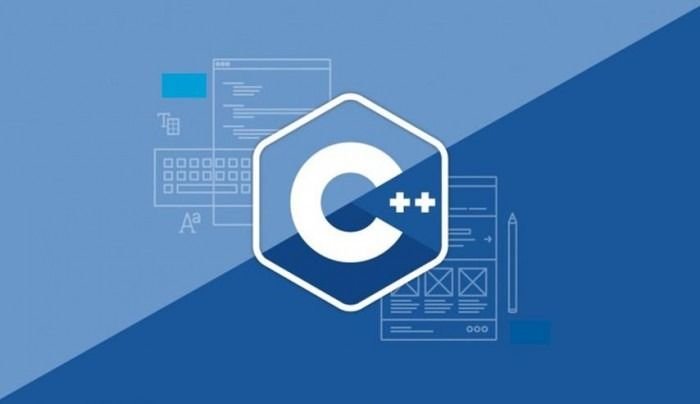Introduction
Memory management in C++ is a critical skill for developers aiming to write efficient, bug-free code. Unlike languages with automatic garbage collection, C++ gives programmers direct control over memory allocation and deallocation, which can lead to powerful performance but also risks like memory leaks. This blog dives into C++ memory management, focusing on the traditional new and delete operators and the modern, safer alternative: smart pointers introduced in C++11. Whether you’re a beginner or an experienced coder, you’ll learn how to manage memory effectively and avoid common pitfalls.
Understanding Memory Management in C++
Memory management in C++ involves allocating and deallocating memory for your program’s objects. C++ uses two primary memory regions:
- Stack: Automatically managed, used for local variables with a fixed lifespan.
- Heap: Manually managed, used for dynamic memory allocation with new and delete.
Heap memory is powerful but prone to issues like:
- Memory Leaks: Forgetting to deallocate memory.
- Dangling Pointers: Accessing memory after it’s been freed.
Effective C++ memory management ensures your program runs efficiently without wasting resources or crashing.
Traditional Memory Management: new and delete
The new Operator
The new operator allocates memory on the heap and returns a pointer to it. It’s used for dynamic objects that persist beyond their scope.
Syntax:
cpp
Type* ptr = new Type; // Single object
Type* arr = new Type[size]; // Array
Example:
cpp
int* num = new int(42); // Allocate an integer
int* arr = new int[10]; // Allocate an array of 10 integers
The delete Operator
The delete operator deallocates memory, preventing leaks.
Syntax:
cpp
delete ptr; // Single object
delete[] arr; // Array
Example:
cpp
delete num; // Free single integer
delete[] arr; // Free array
Common Pitfalls
Using new and delete manually can lead to:
- Memory Leaks: Forgetting delete.
- Dangling Pointers: Using a pointer after delete.
- Mismatched Operators: Using delete instead of delete[] for arrays.
These issues make raw pointers risky, especially in complex programs.
Introduction to Smart Pointers
Smart pointers, introduced in C++11, automate memory management, reducing errors. They wrap raw pointers and handle deallocation automatically using RAII (Resource Acquisition Is Initialization). The C++ Standard Library provides three main smart pointers:
- std::unique_ptr
- std::shared_ptr
- std::weak_ptr
Smart pointers improve code safety and readability, making them a cornerstone of modern C++ programming.
Types of Smart Pointers
1. std::unique_ptr
std::unique_ptr represents exclusive ownership of a resource. Only one unique_ptr can point to an object, and it automatically deallocates the memory when it goes out of scope.
Use Case: Managing a single resource, like a dynamically allocated object.
Example:
cpp
#include <memory>
std::unique_ptr<int> ptr = std::make_unique<int>(42);
// No need to call delete; ptr is freed when out of scope
2. std::shared_ptr
std::shared_ptr allows multiple pointers to share ownership of a resource. It uses reference counting to track how many shared_ptrs point to the object, deallocating it when the count reaches zero.
Use Case: Sharing resources across multiple objects.
Example:
cpp
#include <memory>
std::shared_ptr<int> ptr1 = std::make_shared<int>(42);
std::shared_ptr<int> ptr2 = ptr1; // Both point to the same integer
// Memory freed when both ptr1 and ptr2 are out of scope
3. std::weak_ptr
std::weak_ptr provides a non-owning reference to a shared_ptr-managed object. It doesn’t affect the reference count and is used to break circular references.
Use Case: Preventing memory leaks in cyclic data structures.
Example:
cpp
#include <memory>
std::shared_ptr<int> sp = std::make_shared<int>(42);
std::weak_ptr<int> wp = sp; // Weak reference to sp
Note on std::auto_ptr
std::auto_ptr (pre-C++11) is deprecated due to unsafe behavior. Always use std::unique_ptr instead.
Best Practices for Memory Management in C++
To write robust C++ code, follow these guidelines:
- Prefer Smart Pointers: Use std::unique_ptr for single ownership and std::shared_ptr for shared resources.
- Minimize Raw Pointers: Avoid new and delete unless absolutely necessary.
- Use RAII: Leverage C++’s RAII principle to tie resource management to object lifetimes.
- Choose the Right Smart Pointer:
- unique_ptr for exclusive ownership.
- shared_ptr for shared ownership.
- weak_ptr to avoid circular references.
- Avoid Mixing Pointers: Don’t use raw pointers with smart pointers to prevent confusion.
Practical Example: Comparing Raw Pointers and Smart Pointers
Let’s compare memory management with raw pointers and smart pointers.
Raw Pointers:
cpp
#include <iostream>
void riskyFunction() {
int* ptr = new int(42);
std::cout << *ptr << std::endl;
// Forgot to call delete; memory leak!
}
Smart Pointers:
cpp
#include <iostream>
#include <memory>
void safeFunction() {
std::unique_ptr<int> ptr = std::make_unique<int>(42);
std::cout << *ptr << std::endl;
// No delete needed; memory freed automatically
}
The smart pointer version is safer, more readable, and eliminates the risk of leaks.
Conclusion
Mastering C++ memory management is essential for writing efficient, reliable programs. While new and delete offer fine-grained control, they’re error-prone. Smart pointers like std::unique_ptr, std::shared_ptr, and std::weak_ptr simplify memory management, aligning with modern C++ practices. Start incorporating smart pointers into your projects to improve code safety and maintainability. Have questions or tips? Share them in the comments below!
